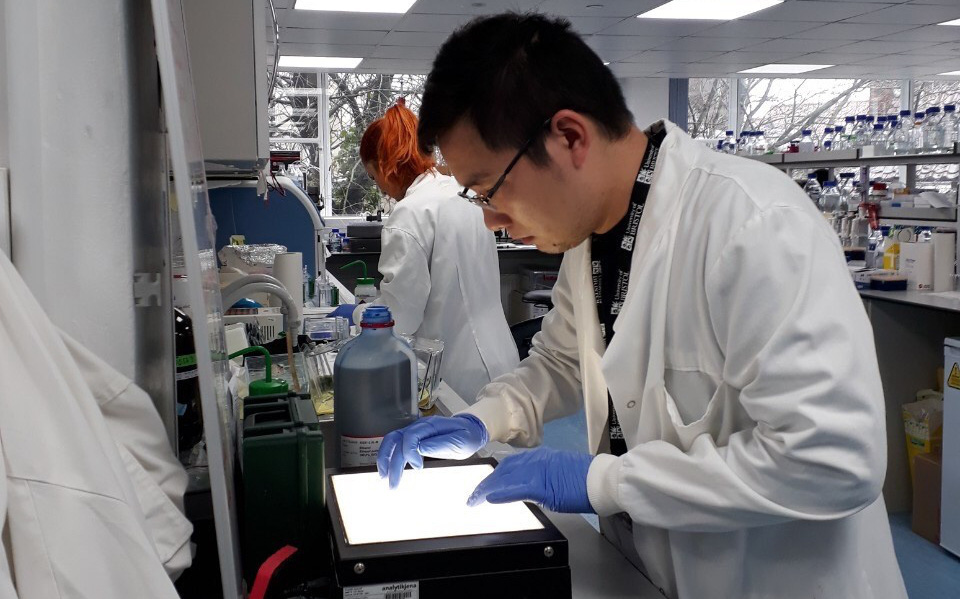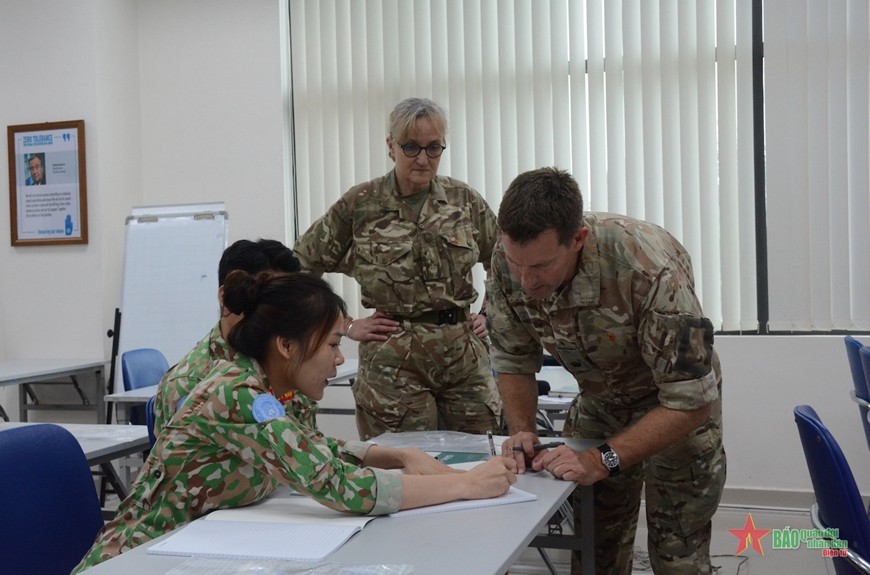First alternating dose vaccine trail launches in UK, promising new possibilities
| COVID 19 World Updates (July 13): Over 13 million infected, US still leads in number of cases | |
| Vietnam aviation industry recovering ater COVID 19 | |
| COVID 19 Vaccines available soon are ”Made-in-Vietnam” |
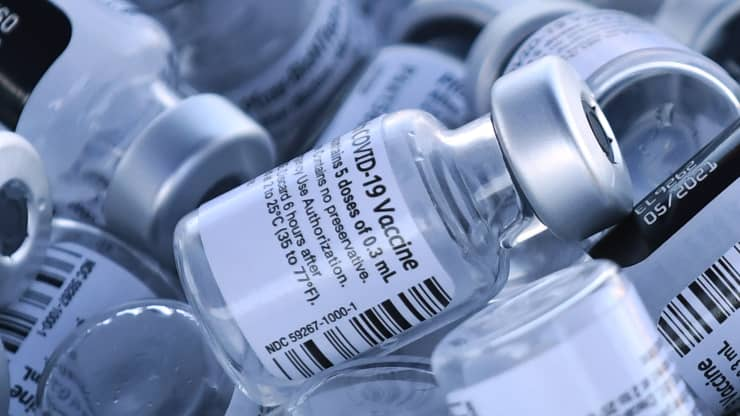 |
| Empty vials of the Pfizer COVID-19 vaccine are seen at a first come first serve drive-thru vaccination site operated by the Lake County Health Department on January 28, 2021 in Groveland, Florida. Paul Hennessy | NurPhoto | Getty Images |
According to CNBC, the trial, being led by the University of Oxford and run by the National Immunisation Schedule Evaluation Consortium, will evaluate the feasibility of using a different vaccine for the initial “prime” vaccination to the follow-up “booster” vaccination.
It is hoped the study will help policymakers understand whether mixing different Covid vaccines could be a viable route to increase the flexibility of vaccination programs and whether it could even provide better protection.
“If we do show that these vaccines can be used interchangeably in the same schedule this will greatly increase the flexibility of vaccine delivery, and could provide clues as to how to increase the breadth of protection against new virus strains,” Matthew Snape, chief investigator on the trial and associate professor in Paediatrics and Vaccinology at the University of Oxford, said on Thursday.
The trial, which is formally known as the “COVID-19 Heterologous Prime Boost study” but has been dubbed the “Com-Cov” study, will recruit over 800 volunteers aged 50 and above in England to evaluate the four different combinations of prime and booster vaccination.
It will trial a first dose of the Oxford-AstraZeneca vaccine followed by boosting with either the Pfizer-BioNTech vaccine or a further dose of the Oxford-AstraZeneca vaccine. The research will also look at a first dose of the Pfizer-BioNTech vaccine followed by boosting with either the Oxford-AstraZeneca vaccine, or a further dose of the Pfizer-BioNTech vaccine. The U.K. government has hailed the trial as a “world first.”
These will be evaluated at two different dosing schedules: at a four-week interval to give an early interim data readout, and at a 12-week interval. This latter dosing interval is the current U.K. vaccination policy: A delay in the second dose means more people can get their first vaccines sooner amid a tight supply of shots.
Although the policy has been seen to be controversial, with some experts worrying that it could make the vaccines in use in the U.K. less effective; so far only the University of Oxford-AstraZeneca and Pfizer-BioNTech candidates are in use, with the Moderna shot set to be added to the basket of vaccines in use later in spring.
However, the University of Oxford published a study on Wednesday in which it showed that a delay of 12 weeks between the first and second doses of the AstraZeneca jab increases the efficacy of the vaccine.
The researchers found that the shot was 76% effective at preventing symptomatic infection for three months after a single dose, and that the efficacy rate rose to 82.4% when there was at least a 12-week interval before the second dose. When the second dose was given less than six weeks after the first one, the efficacy rate was 54.9%.
The 13-month study will monitor the impact of the different dosing regimens on patients’ immune responses, which have the potential to be higher or lower than from the same dose regimen. Initial findings are expected to be released in the summer. The study has received ethics approval from the Research Ethics Committee, as well as approval from the Medicines and Healthcare products Regulatory Agency (MHRA).
Should the study show promising results, then the government may consider reviewing the vaccine regimen approach if needed, but only if proven to be safe and recommended by the Joint Committee on Vaccination and Immunisation (JCVI).
The study will initially have 8 different arms testing 8 different combinations, but more products may be added. The 8 arms include:
2 doses of the Oxford/AstraZeneca vaccine at 28 days apart
2 doses of the Oxford/AstraZeneca vaccine at 12 weeks apart – as a control group
2 doses of the Pfizer/BioNTech vaccine at 28 days apart
2 doses of the Pfizer/BioNTech vaccine at 12 weeks apart – as a control group
the Oxford/AstraZeneca vaccine for the first dose, followed by the Pfizer/BioNTech vaccine for the second, at 28 days apart
the Oxford/AstraZeneca vaccine for the first dose, followed by the Pfizer/BioNTech vaccine for the second, at 12 weeks apart
the Pfizer/BioNTech vaccine for the first dose, followed by the Oxford/AstraZeneca vaccine for the second, at 28 days apart
the Pfizer/BioNTech vaccine for the first dose, followed by the Oxford/AstraZeneca vaccine for the second, at 12 weeks apart
Over 800 patients are expected to take part in the study, referred to as the COVID-19 Heterologous Prime Boost study or ‘Com-Cov’, across 8 different sites across England – including in London, Birmingham and Liverpool.
Patients will be recruited over the course of February via the NHS COVID-19 Vaccine Research Registry, with vaccinations expected to start towards the middle of the month and initial results to be made available over the summer period. The UK public can volunteer to be contacted about taking part in the study and further vaccine studies by joining the registry.
The study has been classified as an Urgent Public Health study by the NIHR and is being undertaken by NISEC and the Oxford Vaccine Group, with funding of £7 million from the government through the Vaccines Taskforce.
How the Com-Cov study will work
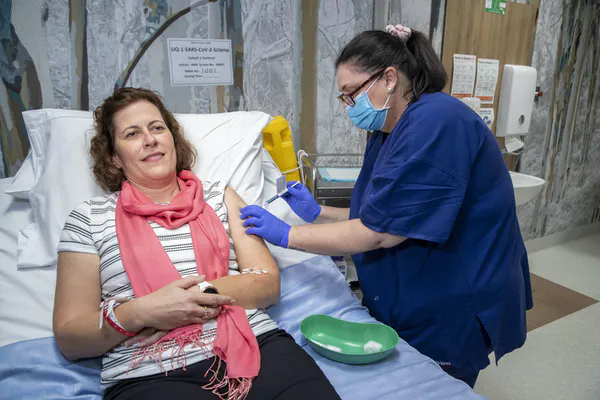 |
| A volunteer in the University of Queensland’s phase 1 trials of it’s COVID-19 vaccine candidate. Glenn Hunt/AAP |
In the latest “Com-Cov” study, researchers will collect blood samples from trial volunteers and will monitor the impact of different dosing regimens on participants’ immune responses, as well as looking for any additional adverse reactions to the new combinations of vaccines.
The study will last for 13 months and has been backed by £7 million ($9.5 million) of government funding from the Vaccines Taskforce, which was set up by the U.K. last April to co-ordinate efforts to research and produce a coronavirus vaccine.
Professor Snape said the study was “tremendously exciting,” before adding that “it will provide information vital to the rollout of vaccines in the U.K. and globally.”
Richer countries are scrambling to vaccinate as many people as possible as national lockdowns, aimed to limit the spread of infections and prevent hospitals from being overrun, damage economies.
The U.K. has been hit hard by the pandemic and has seen cases surge in the winter, aided by a more virulent variant of the virus that emerged in southeastern England that has now become a dominant strain in the country.
The U.K. has the fourth-highest number of cases in the world at present, with over 3.8 million confirmed infections, according to a tally from Johns Hopkins University, and has recorded 109,547 deaths.
The U.K. government was quick to pre-order coronavirus vaccines from a variety of makers early on last year, and to approve the vaccines currently in use. Its vaccination program has been widely praised for its agility and reach, and it’s on target to have vaccinated 15 million people in its top four priority groups, including health and care workers, the elderly and over-70s and anyone deemed extremely clinical vulnerable, by mid-February.
The latest government data, as of Wednesday, shows that just over 10 million people have had their first vaccine dose, and just under 500,000 have had a second dose, too. The Oxford-AstraZeneca vaccine, which is produced in Britain, makes up the bulk of the U.K.’s vaccination program.
Deputy Chief Medical Officer and Senior Responsible Officer for the study, Professor Jonathan Van-Tam, said that the research could even show that alternating vaccines could enhance the level of antibodies needed to fight potential Covid-19 infection.
“It is also even possible that by combining vaccines, the immune response could be enhanced giving even higher antibody levels that last longer; unless this is evaluated in a clinical trial we just won’t know. This study will give us greater insight into how we can use vaccines to stay on top of this nasty disease,” he said.
The U.K.‘s vaccines minister Nadhim Zahawi told the BBC on Thursday that, for now, the country’s vaccination program will continue as normal: “At the moment we will not change anything at all,” Zahawi told the ‘Today’ program.
“If you’ve had a Pfizer BioNTech vaccine for your first dose, you’ll have a Pfizer BioNTech vaccine for your second. If you’ve had Oxford-AstraZeneca, you’ll have Oxford-AstraZeneca for your second dose.”
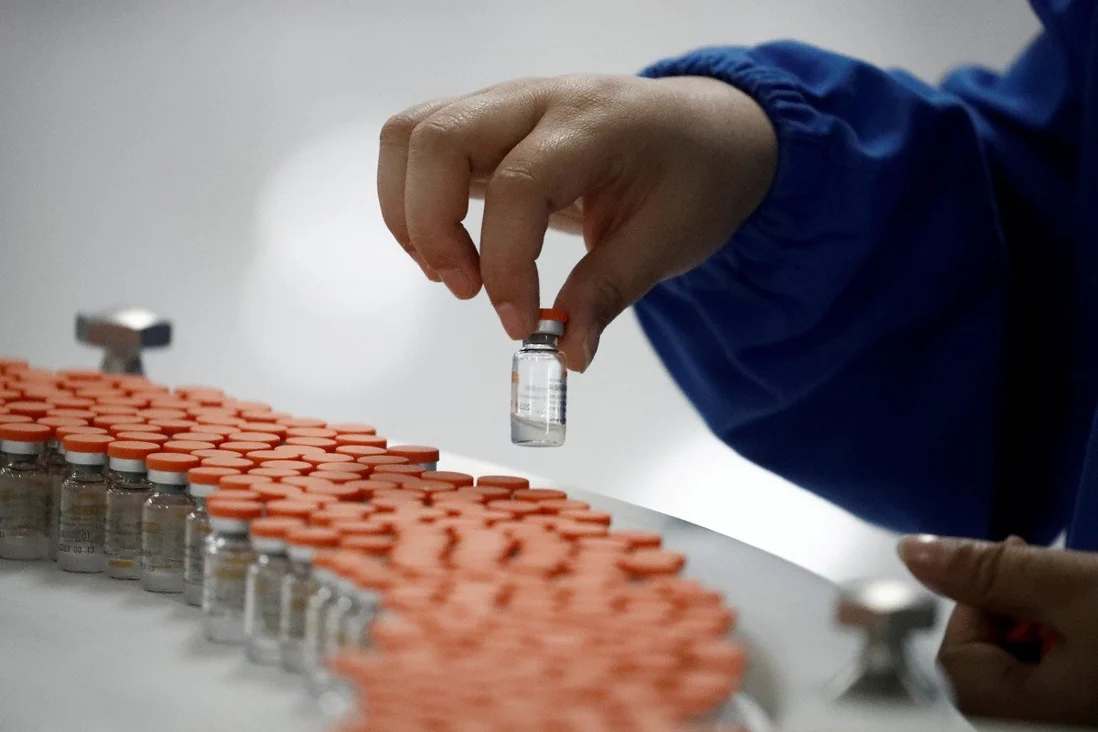 | China: Police detain 80 for selling fake Covid vaccines, worries over vaccines's reliability Forgery Covid vaccines raises concerns about the efficacy and reliability of Chinese shots and local supplies, sparkling skeptisim among Chinese citizens. |
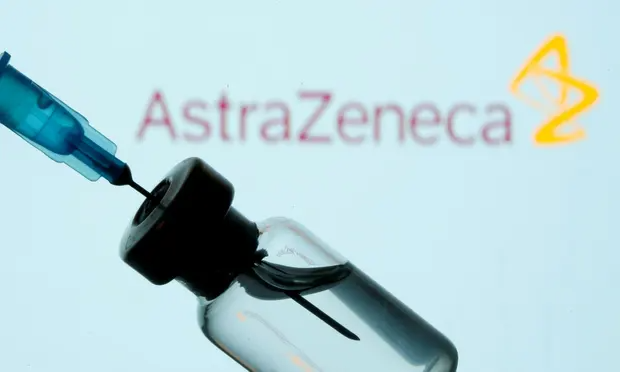 | Intense Covid's vaccines dispute between UK and EU continues, revealing the truth about vaccine nationalism EU and UK's dispute over Covid-19's vaccine deliveries has become more intense, and whether contract means Covid jabs produced in UK must be sent to ... |
 | Five-star Saigon hotels contribute to quarantine purposes Isolation zones for foreign experts entering the city to work under special permission are now provided by a number of three to five-star hotels in ... |
Recommended
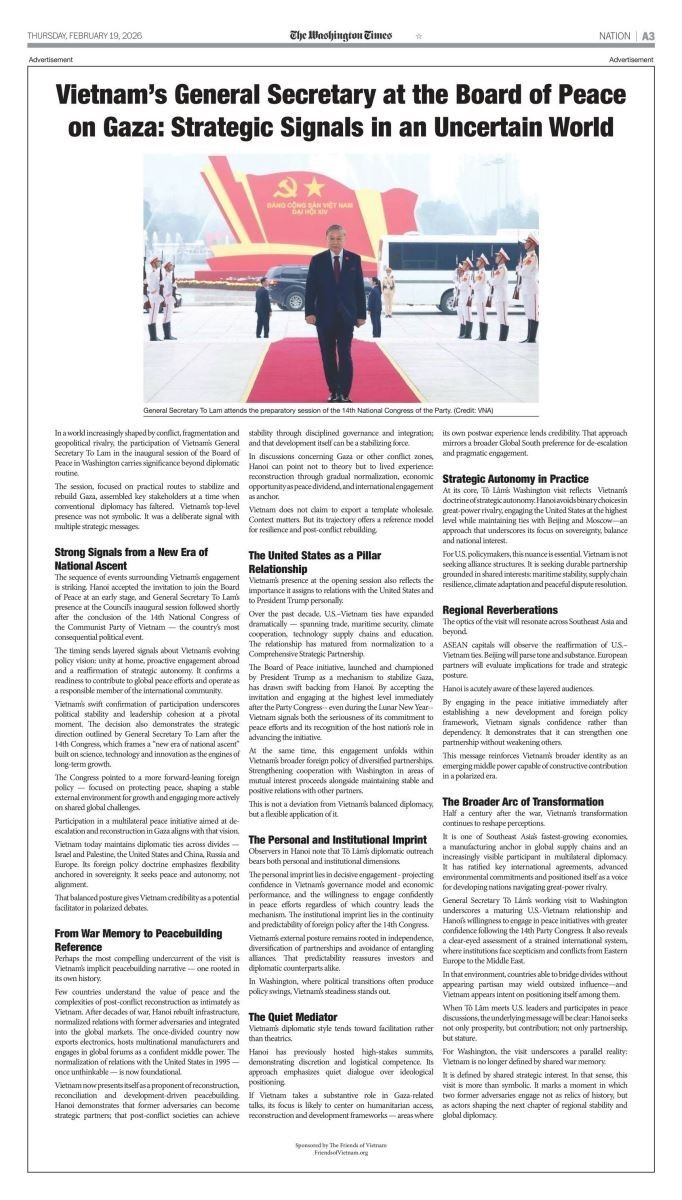 World
World
US Media Commend Vietnam’s Role in Global Peace Efforts
 World
World
Vietnam Officially Becomes Association Country of International Energy Agency (IEA)
 World
World
Key pacts signed as PM Modi hosts France's Macron for plane cooperation
 World
World
India, Canada commit to strengthening bilateral ties, discuss trade
 World
World
AI Summit India 2026 Live Updates: ‘Bringing the world together,’ PM Modi welcomes leaders as India hosts AI summit
 World
World
Safran ready to open India engine production in Rafale deal
 World
World
Nepal interim PM Sushila Karki thanks India for March support
 World
World



